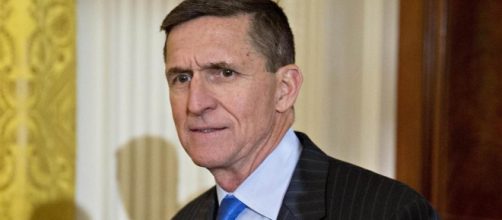Michael Flynn resigned from his position as National Security Advisor on Monday evening. The former general had been embattled for weeks after intelligence reports went public regarding his conversations with Russian ambassador Sergey Kislyak and subsequent misleading of trump administration members about these discussions.
Flynn’s problematic background
The selection of former General Flynn as National Security Advisor was marred by questions of close ties with the repressive Russian government. For example, the former general is reportedly under Army investigation for a potential breach of military regulations when he accepted money for a 2015 speaking engagement in Moscow.
However, as a member of the Trump’s executive office, the appointment of Flynn did not require Senate approval.
The aforementioned interactions that led to Flynn’s resignation occurred in December 2016. Flynn exchanged texts with Kislyak around Christmas and the two also had phone conversations on December 29th. These discussions occurred in the wake of US retaliation against the Russian government for their hacking of the Democratic National Committee to improve the chances of Trump winning the 2016 presidential election. The Obama administration expelled 35 Russian diplomats and levied sanctions against Russia.
Truth comes out
Criticism of Flynn skyrocketed on January 22nd after the Wall Street Journal reported that Flynn was under investigation from multiple US counterintelligence agencies.
The US Justice Department had warned the Trump administration in January that Flynn had misled administration officials about the extent of his talks with the Russian ambassador. The reports concluded that Flynn had discussed the Obama administration sanctions with Kislyak and that he could be vulnerable to blackmail. The discussion of ongoing foreign policy with a foreign official could have been a direct violation of the Logan Act. This federal statute, enacted in 1799, prohibits anyone outside the executive branch from conducting foreign policy on behalf of the administration.
Despite the mounting criticism, the former general initially assured the administration that he had not discussed sanctions with Ambassador Kislyak.
Vice President Mike Pence actually defended Flynn during an interview with CBS on February 12th, backing up what he had been told by Flynn. However, on February 13th the White House presented contradictory depictions of confidence that Trump had in Flynn. White House spokesman Sean Spicer stated that Trump was “reviewing the situation” with the former general only hours after Kellyanne Conway, Trump’s senior aide, had stated that Trump had “full confidence” in Flynn during an MSNBC interview. Eventually, Flynn resigned on February 13th after the situation became untenable.
Silver lining
The shameful resignation of Michael Flynn is the first big scandal for the Trump administration. The lack of communication & prevalence of leaks within the White House is clearly impacting its viability.
Furthermore, Trump’s supportive comments of & questionable relationship with Putin’s repressive government have alarmed the US national security apparatus, the American people, and international community. The selection of Flynn as National Security Advisor, with all his questionably pro-Russian baggage, was a mistake. General Keith Kellogg has been chosen to be the interim National Security Advisor. Kellogg, along with retired Gen. David Petraeus (a former general with his own checkered past) and former Vice Admiral Bob Harward are reportedly being considered as permanent replacements.
Although the resignation of Flynn is an unfortunate episode, the Trump administration now has an excellent opportunity to fix the mistake. The selection of a moderate, uncompromised head of US national security would provide a level-headed shot-caller in a crucial post. Hopefully, second time’s the charm for President Trump.

